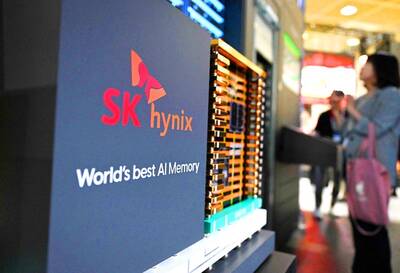The TAIEX is undergoing a corrective period that is expected to persist for at least two more weeks, Financial Supervisory Commission (FSC) Chairwoman Jennifer Wang (王儷玲) said yesterday.
Wang’s comments came after the TAIEX shed 1 percent to close at 8,294.12 points, falling below the 26-week moving average, while foreign institutional investors sold a net NT$12.63 billion (US$39.22 million) worth of Taiwanese stocks.
Regarding heavy net selling by foreign institutional investors during yesterday’s session, Wang said that there are no concerns over capital flight from the local bourse.
She said that as of the end of last month, net foreign capital inflow to Taiwan tallied US$202.1 billion, of which US$1.75 billion was recorded last month.
“We have not detected a marked shift in net foreign capital inflow, although foreign institutions have been adjusting their investment allocation,” Wang said.
Wang said that apart from lingering global macroeconomic factors, the correction in the local bourse partly reflects uncertainties about the presidential handover on May 20.
She said that a majority of companies have indicated a positive outlook over the nation’s economic growth momentum in the second half, with most expecting a recovery from a trough in the first half.
In related news, credit card spending reached NT$199.6 billion in March to reach the fourth-highest level since tracking began in 2005, the commission said.
As of the end of March, Cathay United Bank (國泰世華銀行) was in the lead among credit card issuers, with spending reaching NT$33.54 billion in the month, followed by CTBC Bank Co Ltd (中國信託銀行) at NT$28.52 billion and E.Sun Commercial Bank (玉山銀行) at NT$22.43 billion.
The commission attributed the marked sequential jump to the lower number of business days in February, adding that more people have been paying recurring bills with credit cards.
However, revolving balance in the period dropped by NT$2 billion sequentially to NT$104.7 billion, commission data showed.

Intel Corp chief executive officer Lip-Bu Tan (陳立武) is expected to meet with Taiwanese suppliers next month in conjunction with the opening of the Computex Taipei trade show, supply chain sources said on Monday. The visit, the first for Tan to Taiwan since assuming his new post last month, would be aimed at enhancing Intel’s ties with suppliers in Taiwan as he attempts to help turn around the struggling US chipmaker, the sources said. Tan is to hold a banquet to celebrate Intel’s 40-year presence in Taiwan before Computex opens on May 20 and invite dozens of Taiwanese suppliers to exchange views

Application-specific integrated circuit designer Faraday Technology Corp (智原) yesterday said that although revenue this quarter would decline 30 percent from last quarter, it retained its full-year forecast of revenue growth of 100 percent. The company attributed the quarterly drop to a slowdown in customers’ production of chips using Faraday’s advanced packaging technology. The company is still confident about its revenue growth this year, given its strong “design-win” — or the projects it won to help customers design their chips, Faraday president Steve Wang (王國雍) told an online earnings conference. “The design-win this year is better than we expected. We believe we will win

Power supply and electronic components maker Delta Electronics Inc (台達電) yesterday said it plans to ship its new 1 megawatt charging systems for electric trucks and buses in the first half of next year at the earliest. The new charging piles, which deliver up to 1 megawatt of charging power, are designed for heavy-duty electric vehicles, and support a maximum current of 1,500 amperes and output of 1,250 volts, Delta said in a news release. “If everything goes smoothly, we could begin shipping those new charging systems as early as in the first half of next year,” a company official said. The new

SK Hynix Inc warned of increased volatility in the second half of this year despite resilient demand for artificial intelligence (AI) memory chips from big tech providers, reflecting the uncertainty surrounding US tariffs. The company reported a better-than-projected 158 percent jump in March-quarter operating income, propelled in part by stockpiling ahead of US President Donald Trump’s tariffs. SK Hynix stuck with a forecast for a doubling in demand for the high-bandwidth memory (HBM) essential to Nvidia Corp’s AI accelerators, which in turn drive giant data centers built by the likes of Microsoft Corp and Amazon.com Inc. That SK Hynix is maintaining its